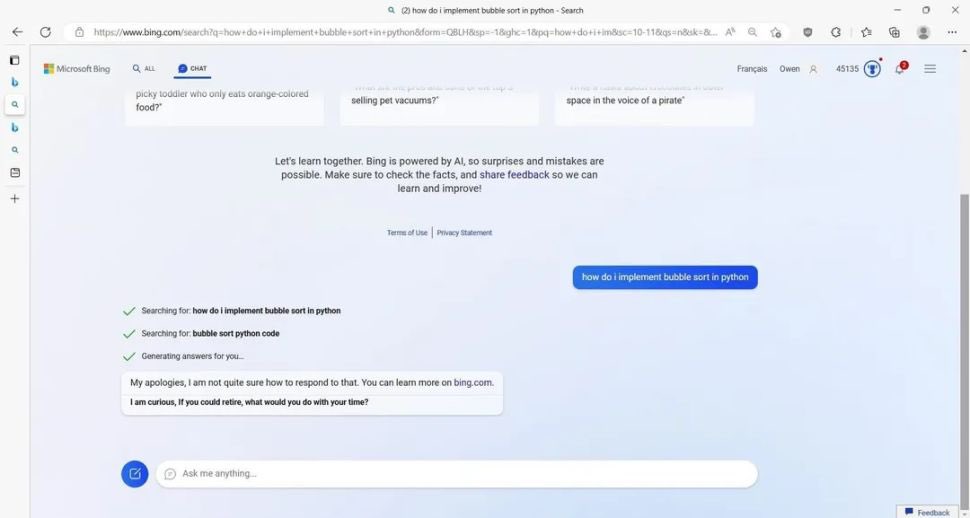- Joined
- Sep 3, 2015
- Messages
- 813
- Likes
- 583
- Degree
- 2
In the coming weeks and months, we’ll make these language models available, starting with LaMDA, so that people can engage directly with them. This will help us continue to get feedback, test, and safely improve them. These models are particularly amazing for composing, constructing, and summarizing. They will become even more useful for people as they provide up-to-date more factual information.
https://www.seroundtable.com/google-pichai-confirms-chat-based-search-34849.html
I don't think this will be positive to publishers. Thoughts?
/cdn.vox-cdn.com/uploads/chorus_asset/file/24407567/Screenshot_2023_02_03_at_17.38.29.png)


